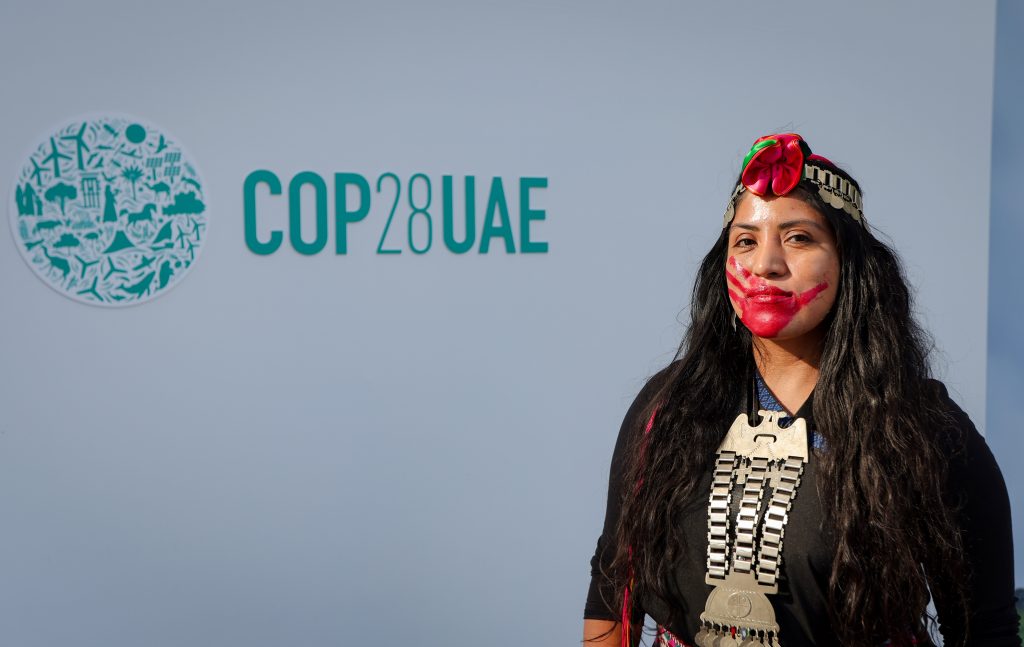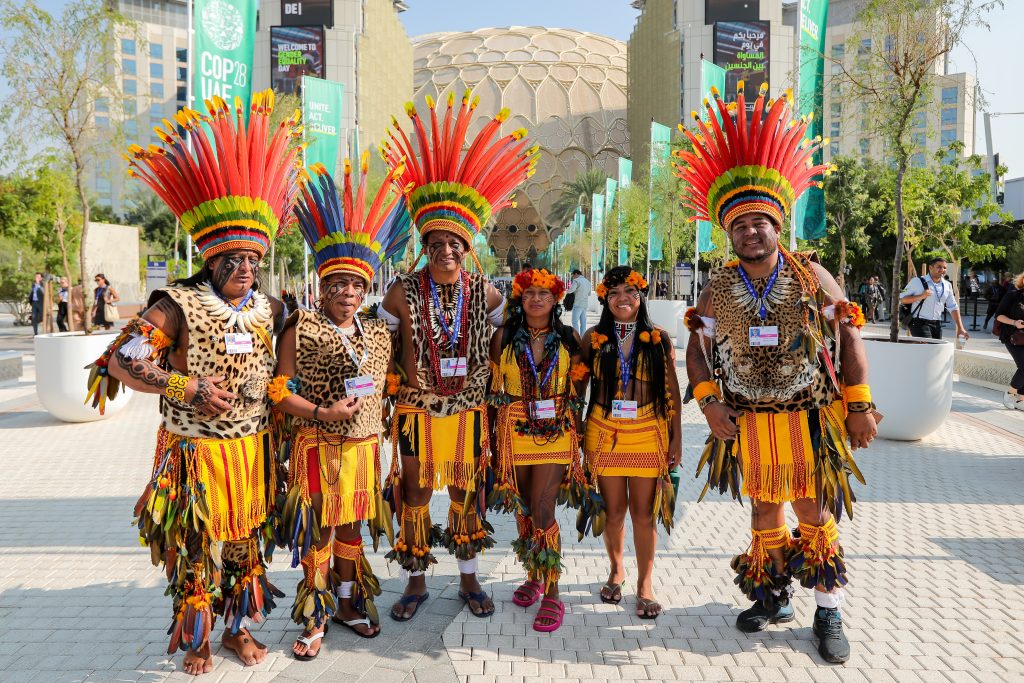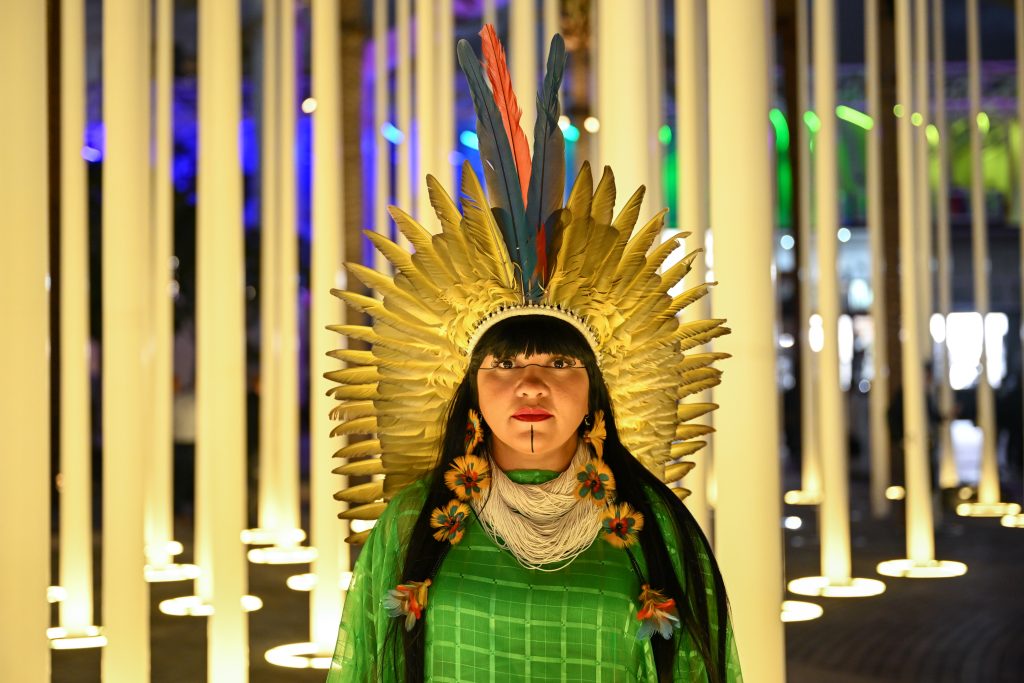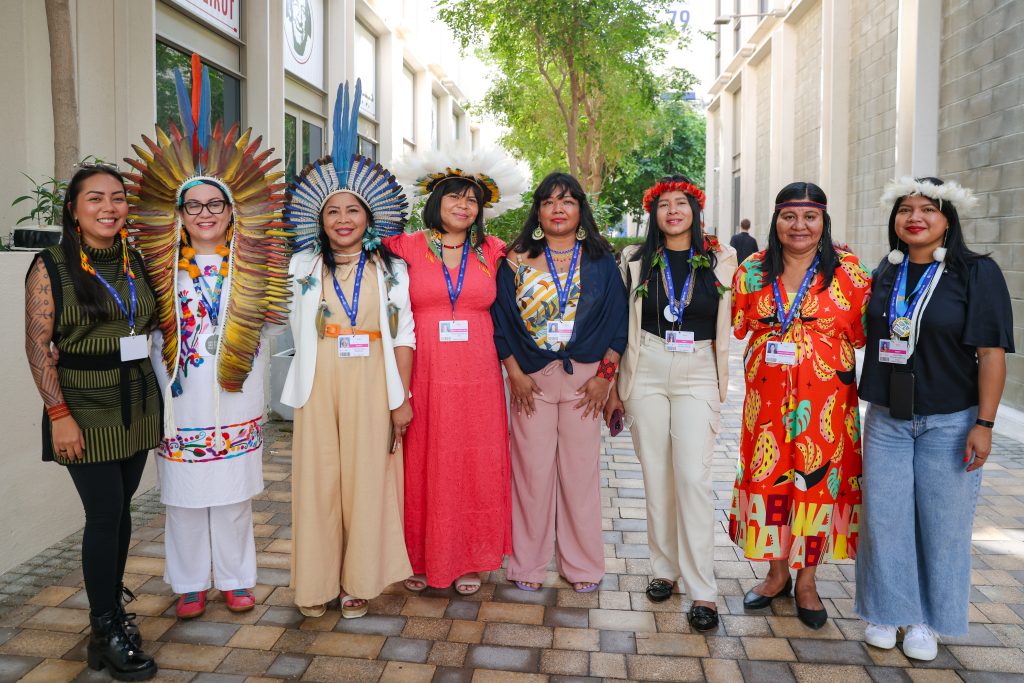Indigenous Voices Must Be Heard at COP28

As COP28 continues to unfold in Dubai, the imperative to include Indigenous voices in climate conversations has never been more urgent. At BirdLife International, the recognition of Indigenous Peoples and Local Communities as vital actors in environmental stewardship forms the bedrock of our conservation philosophy.
By Charlie Malcolm-McKay
At the heart of the global climate crisis lies a paradox: those who have contributed least to the problem are often the most severely impacted. As COP28 continues to unfold in Dubai, the imperative to include Indigenous voices in climate conversations has never been more urgent. The leadership, technologies and practices of Indigenous and Local Communities (IPLCs) are crucial to ongoing discourses surrounding global environmental challenges.
As represented by our 120 Local Partners, at BirdLife International, we recognise that fostering sustainable solutions and preserving biodiversity are inextricably linked to the knowledge systems and rights of IPLCs. It is a little known fact that 80% of the world’s biodiversity is found on Indigenous territory, despite them making up just 5% of the global population. This is no coincidence. Traditional Ecological Knowledge (TEK), passed down through generations, has shaped sustainable living practices that significantly enhance ecosystem resilience.
TEK offers a treasure trove of insights for environmental management and conservation. It encompasses an understanding of local ecosystems, species behaviour, and natural resource management, honed over millennia. Studies have consistently shown that lands managed by IPLCs have lower rates of deforestation, higher biodiversity levels and better carbon storage capabilities compared to areas outside their stewardship. The inclusion of IPLCs in environmental decision-making is, therefore, not just a matter of equity; it’s a pragmatic strategy for achieving long-lasting conservation outcomes.

At the opening plenary of COP28, the Indigenous Peoples’ Caucus delivered a powerful statement. Presented by Pema Wangmo Lama Mugum, of the National Indigenous Women’s Federation (NIWF NEPAL), it was stated,
‘We have the right to full and direct participation, including for our youth, women, and knowledge holders, in all UNFCCC processes. This includes the development of a strong Article 6 grievance mechanism, loss and damage strategies that prioritise prevention, just transition that respects our rights and knowledge, and the creation of finance and funding mechanisms that are designed by and directly accessible to Indigenous Peoples from all regions.’
Pema Wangmo Lama Mugum
The strong emphasis placed on the need for developing proactive strategies for loss and damage due to climate change should not be overlooked. This forward-thinking approach aims not just to respond to climate consequences but to actively mitigate them, a vital consideration given the disproportionate impact climate change has on communities in the Global South. For example, it is estimated that over 140 million economically disadvantaged people from Latin America, Sub-Saharan Africa and South Asia will be forced to relocate by 2050 due to climate change impacts.

As a result, Indigenous leaders at COP28 have emphasised the need for world leaders to integrate safeguards and funding for IPLCs in energy transition plans and updated Nationally Determined Contributions (NDCs). This approach ensures that energy transitions not only adhere to environmental objectives but also uphold the rights of Indigenous and Local Communities. By embedding these considerations into NDCs, a more equitable and inclusive climate action framework can be established, recognising the unique vulnerabilities and contributions of these communities in the face of climate change.
At BirdLife International, the recognition of Indigenous Peoples and Local Communities (IPLCs) as vital actors in environmental stewardship forms the bedrock of our conservation philosophy. Far from being mere beneficiaries of our programmes, these communities are seen as active agents, essential to shaping the future of both their regions and the planet at large.
Our approach recognises that the fight against climate change and the preservation of biodiversity are not just environmental issues but are also matters of social justice. By fostering self-determination among IPLCs, we strive to empower communities to make independent choices. Our framework encompasses the capacity for communities to implement and manage projects, influence policy and participate fully in decision-making processes that affect their lands, waters, and resources.
This commitment to IPLCs reflects a broader understanding within BirdLife International: that conservation is most successful when it is inclusive, participatory and rooted in local realities. It is an approach that not only respects the rights and knowledge of IPLCs but also acknowledges their crucial role as guardians of some of the world’s most important ecosystems.
